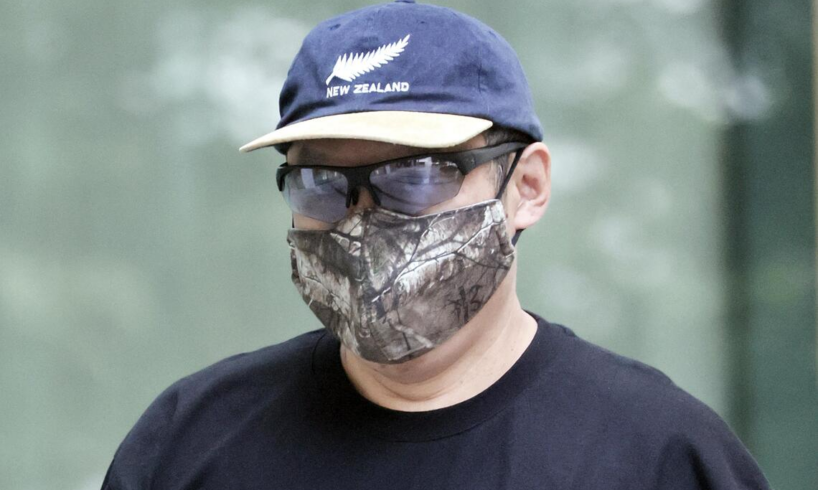
SINGAPORE – A chief investment officer whose firm did not disclose conflicts of interests in its investment in a $1.46 billion nickel trading scam run by alleged fraudster Ng Yu Zhi has been fined $9,000 by a court on Oct 7.
Doo Chun Ki, 56, was also a director at Envysion Wealth Management (EWM), which did not disclose to investors that Ng gave substantial loans to EWM’s chief executive officer, among other failings.
When Ng’s business was
exposed as an alleged Ponzi scheme
, EWM’s investors lost a total of about $67 million. The prosecution said EWM’s regulatory failures may have contributed to these losses.
Doo pleaded guilty on Oct 7 to neglect as an officer of EWM for the firm failing to mitigate conflicts of interest arising from the management of assets. This is believed to be the first conviction under this regulation under the Securities and Futures Act.
One other charge of the firm failing to put in place an appropriate risk management framework for management of funds was taken into consideration for Doo’s sentencing.
Deputy Public Prosecutor David Koh told the court that EWM was a family office which advised and managed investment portfolios. The firm had three directors: Doo, then chief executive officer Shim Wai Han and then chief operating officer Tan Kay Siong.
Doo, a master’s degree holder with extensive experience in the banking industry, was responsible for evaluating investment opportunities for EWM.
The firm launched its Envysion Commodities Strategy Fund in May 2020. Its sole strategy was to invest in a nickel receivables scheme offered by Ng’s company, Envy Global Trading (EGT).
Under the purported scheme, EGT would buy nickel at a discounted price from mining firm Poseidon Nickel, then sell it to forward buyers and profit from the difference.
There were 122 investors in the fund who put about $56.5 million and US$15.4 million (S$19.9 million) in EGT. All three directors of EWM also made personal investments in the scheme.
The scheme eventually collapsed and Ng was declared bankrupt in December 2022. Ng
has claimed trial in the High Court on 42 criminal charges.
It was later revealed that Ng had loaned Shim $7.5 million, which was used for EWM’s business operations. Part of the money was injected in the firm when its base capital fell below regulatory requirements.
Shim and Ng also agreed that part of the loan amount, or $5.5 million, could be converted into a 50 per cent shareholding in Envysion Holdings, which was the sole shareholder of EWM.
DPP Koh said this arrangement could potentially give Ng indirect influence over EWM.
Additionally, EWM earned referral fees from EGT for referring clients to Ng’s scheme. EWM received $3.3 million in such fees in 2020, which was about 65 per cent of the firm’s total revenue for that year.
DPP Koh said: “Envysion would have a substantial financial interest in persuading its clients to invest in the fund… which ran against its clients’ interests in Envysion providing a clear-eyed analysis of the prospects of the (scheme).”
Doo had begun to be uncomfortable with Ng’s scheme around July 2020, but did not put a stop to the investment as he knew EWM could not survive otherwise, said DPP Koh.
EWM did not specifically disclose the existence of the loans or the proportion of its referral fees in its revenue, said DPP Koh.
The prosecutor said conflicts of interest need to be properly disclosed to clients to ensure that they can invest with complete and accurate information.
Shim and Tan have been charged with similar regulatory failings, with both cases pending before the courts. Shim has been charged with three other offences under the Financial Advisers Act and Official Secrets Act.
Noting that Doo had himself invested more than $1 million in Ng’s scheme, DPP Koh said: “We recognise that the accused himself was a victim in Ng’s scheme and suffered personal losses. Nevertheless, the accused bears significant responsibility, given his role in Envysion, for the regulatory failures.”
The prosecutor pressed for a fine of between $10,000 and $12,000, while Doo’s lawyers from Covenant Chambers asked for a fine of between $5,000 and $7,000.
His lawyer Rebecca Soh said Doo had always performed his duties in the investors’ best interests, and had tried to find new streams of income besides EGT for the investors.
She added that this case has ruined Doo’s career in the financial industry, and he has had to work part-time at fast-food restaurants and sell bak kwa (barbecued pork slices) to support his family.
For this regulatory failing, Doo could have been fined a maximum of $50,000.
Clarification note: This story has been edited for clarity.





